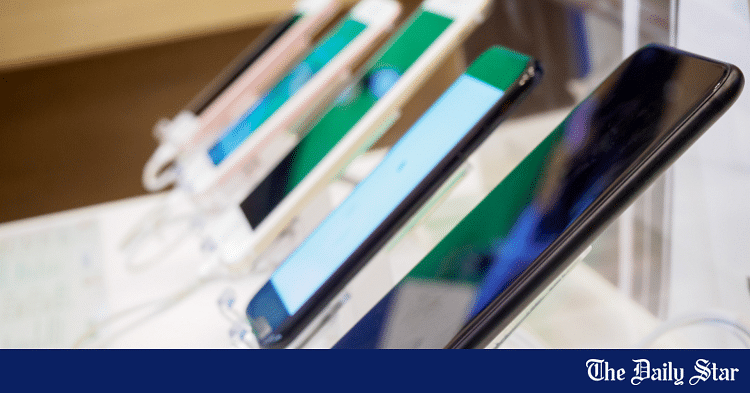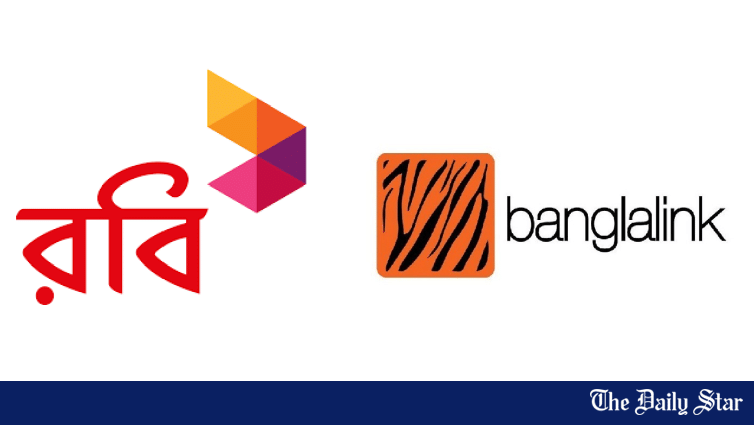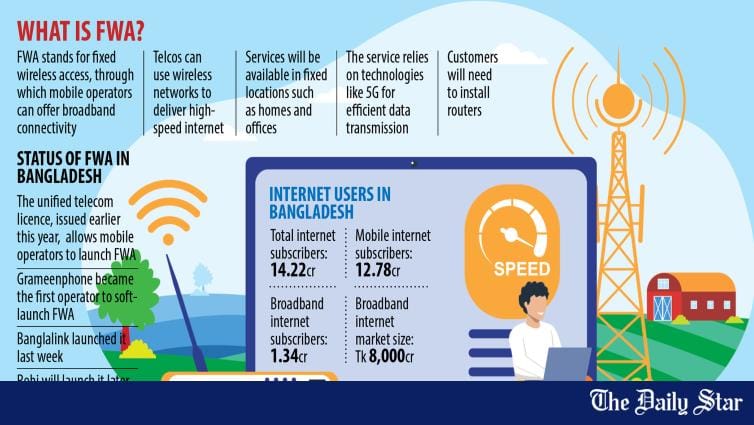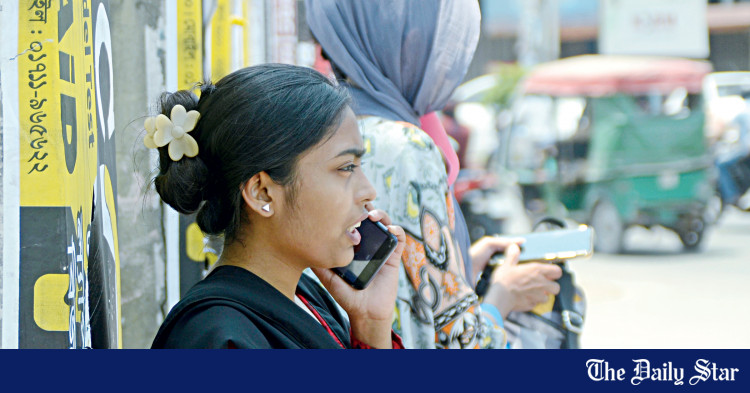Telcos’ service falls short of BTRC standard
Shows drive test result with state-of-art system
Mobile operators performed poorly in the telecom regulator's latest drive test to assess service quality, reinforcing users' claims of experiencing substandard service.
The drive tests were conducted between February 14 and June 5 across Dhaka city corporations, Narayanganj, Keraniganj and Savar upazilas with the Bangladesh Telecommunication Regulatory Commission's newly acquired system from Germany that was purchased for 1.5 million euros.
Maintaining the quality of service (QoS) is a fundamental requirement enshrined in telecommunications licences, said Abu Nazam M Tanveer Hossain, a telecom sector expert.
"Since 2011, licensees have negotiated these standards through consultation and negotiation and the recent report, if accurate, highlights a significant failure to uphold the commitments made upon accepting these licences," he said.
Robi, which has 5.8 crore customers as of August, performed the best, failing in only five key performance indicators (KPIs) out of 40 across four areas.
Market leader Grameenphone, which has 8.5 crore subscribers, failed in six KPIs, Banglalink in 14 and Teletalk in a staggering 26, shows the test results.
For internet services, only the state-owned Teletalk failed to meet the BTRC's benchmarks, with Robi faring the best.
In Dhaka city, Banglalink, which has 4.2 crore customers, fared the worst among the three private carriers: it failed to meet five of the 10 KPIs. For instance, the operator's call drop rate was above the BTRC's ceiling of 2 percent in Dhaka city: it was 2.59 percent.
Over in Keraniganj upazila, all operators' call drop rate was above the BTRC's ceiling of 2 percent for 2G voice calls, with Banglalink faring the worst (4.25 percent).
However, for 4G voice calls in the upazila, only Banglalink passed the test, with Robi faring the worst (3.98 percent).
All four operators failed to meet the BTRC's ceiling for call setup time of 7 seconds in Savar for 2G voice calls.
Banglalink and Teletalk also failed in Keraniganj, while Teletalk missed the mark in Dhaka and Narayanganj.
For call setup success ratio, which should not be less than 97 percent, all operators except Grameenphone failed in Keraniganj.
For 2G voice calls, only Robi met the call setup success ratio in Dhaka and Narayanganj.
The unsatisfactory performance comes as the operators are not fully utilising the spectrum from the higher bands assigned to them in March 2022. Conversely, the operators are relying on the lower band, which offers wider coverage with fewer base stations.
The higher band have a shorter range but more bandwidth, meaning better transmission capacity but with a higher concentration of base stations.
Banglalink, which purchased 40 MHz in the 2,300 band, has deployed the spectrum only to 7.07 percent of its sites, according to a BTRC presentation in June.
Grameenphone and Robi, both of whom bought 60 MHz in the 2,600 band, have deployed the spectrum to 11.92 percent and 17.76 percent of the sites respectively.
If the operators offload data service pressure to a higher band, the lower band spectrum is freed up to offer better 2G voice services.
However, the lack of proper spectrum usage is causing customers to experience poor signal, frequent call drops and mute calls.
Over the past decade, the BTRC has implemented measures such as infrastructure sharing and unified licensing to optimise operational costs.
Yet, the mobile operators' QoS is falling short of customer expectations.
The drive test result is a setback for operators, who often claim compliance with the BTRC benchmarks despite deteriorating service quality.
It also raises questions about their ambitions to become digital operators offering services such as payments and OTT platforms while struggling to provide core telecom services.
"The BTRC as the regulatory body should ensure satisfactory services and tariffs for the users," said Ghulam Rahman, president of the Consumers Association of Bangladesh.
Contacted, Emdad Ul Bari, who was appointed the chairman of the BTRC on September 10, said he has not seen the result of the drive test yet.
However, Bari said he sat with the chief executive officers of the telecom operators on Tuesday regarding QoS.
"We have urged them to find the way to ensure QoS, including when inside buildings," he said, adding that the BTRC will hold an industry consultation on the matter on October 10.
Robi and Banglalink said the drive test result conducted by the BTRC's newly procured tool differed from the ones derived from their own tests in several parameters.
The operators have expressed their concerns and feedback about the drive test results through the Association of Mobile Telecom Operators of Bangladesh.
The results do not depict the correct picture, said Shahed Alam, chief corporate and regulatory officer of Robi.
"We are hopeful in reaching an acceptable conclusion regarding the drive test results," Alam said, adding that Robi plans to roll out the 2,600 MHz band in 35 percent of the sites this year and will continue to deploy in more sites as per requirement and traffic forecast.
The BTRC's results do not reflect the network's performance and could cause confusion, said Taimur Rahman, chief corporate and regulatory affairs officer of Banglalink, adding that the operator is "fully utilising the 2,300 MHz band" at present.
The AMTOB, the BTRC and drive test vendors are working together on a unified methodology for calculating the KPIs as significant differences have been observed between the drive test results of the operators and the telecom regulator's, Grameenphone said in a statement.
About the low deployment of the spectrum from the 2,600 MHz band, Grameenphone said the 60 MHz of spectrum in the band was acquired to enhance capacity based on traffic and QoS demands.
The demands are determined by various ecosystem factors such as user behaviour, usage profiles, user concentration and handset penetration.
Grameenphone monitors traffic demand almost in real-time and initiates capacity expansion or new spectrum deployment as needed, the statement added.
Teletalk could not be reached for comment.














































